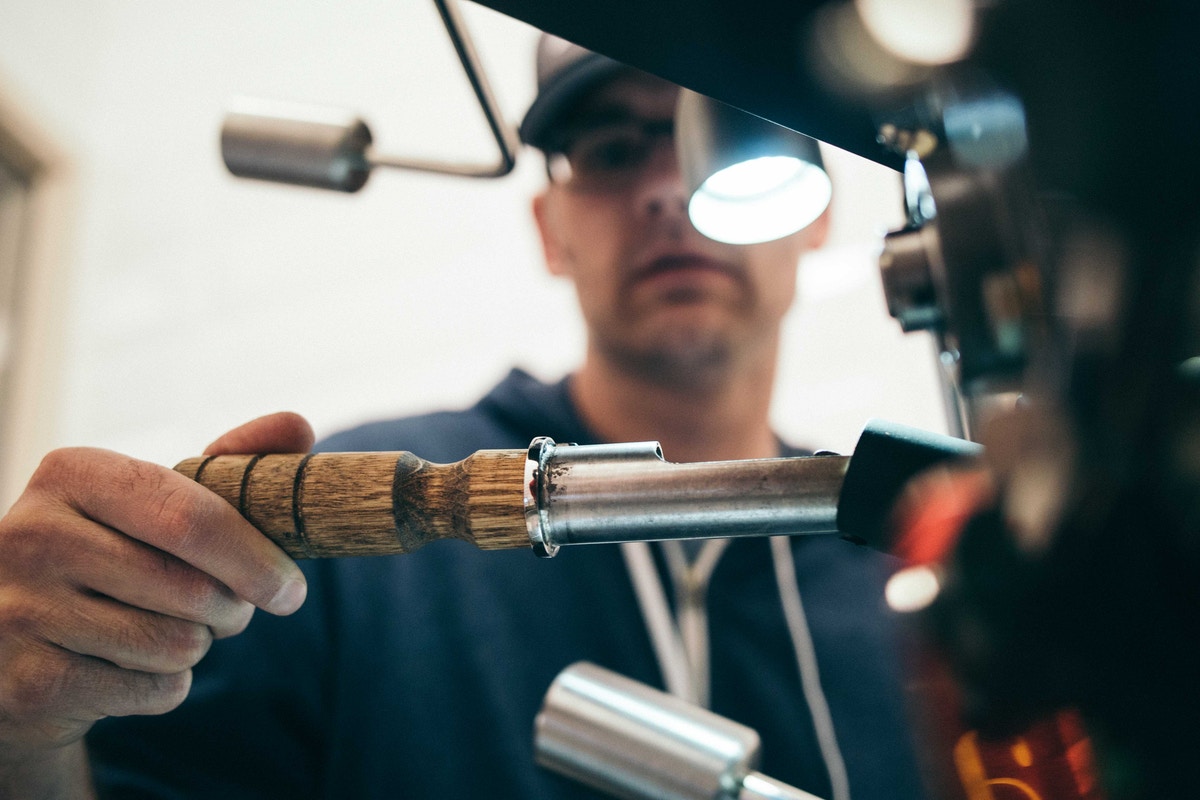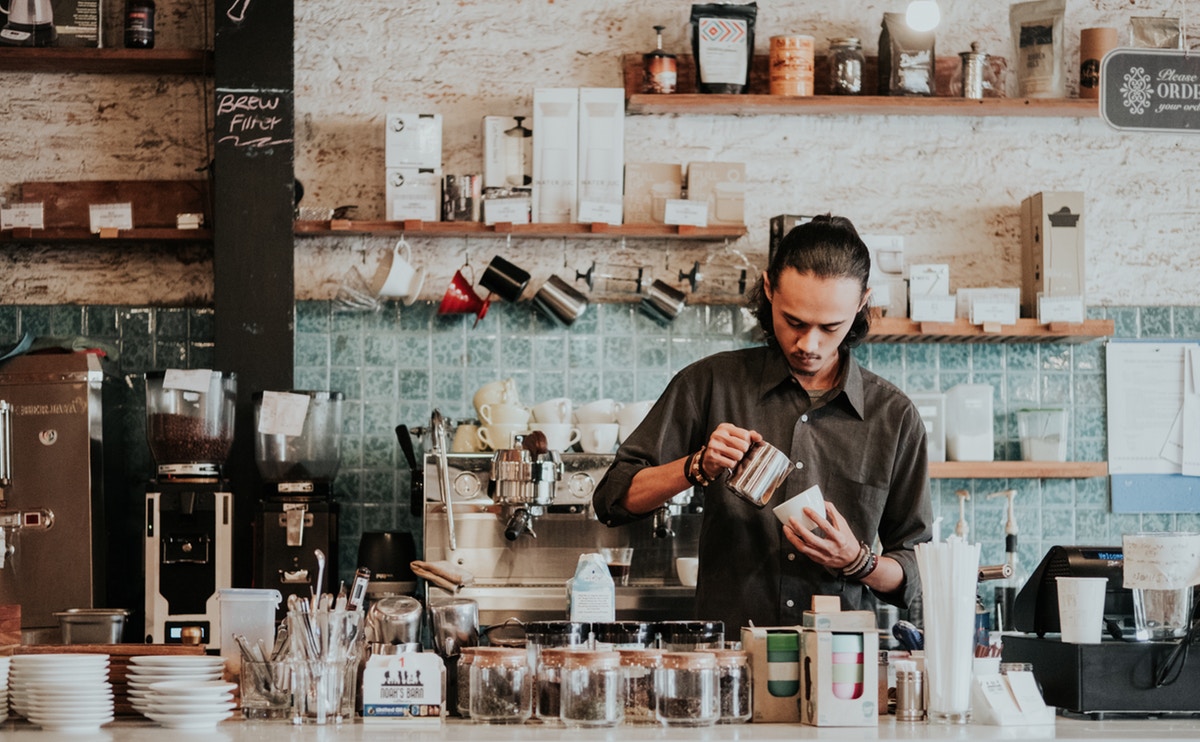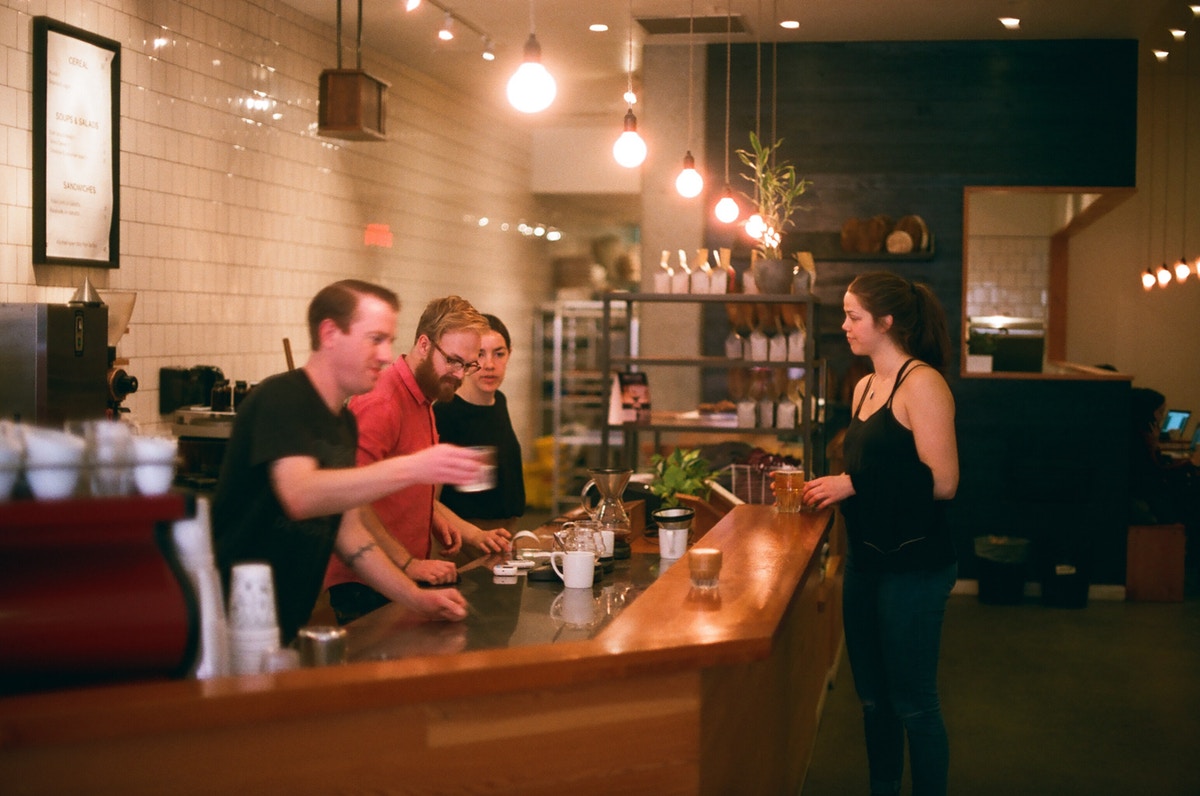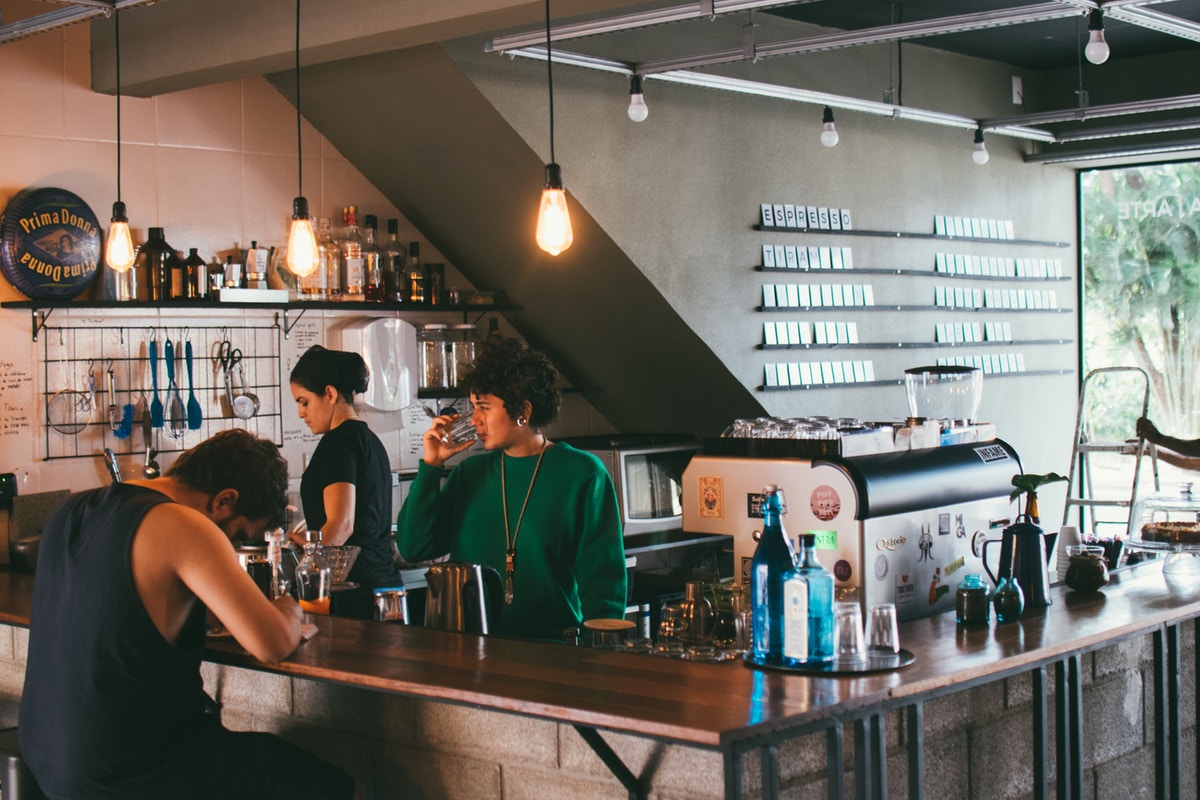Coffee is more than just a drink! How do social enterprises and the coffee industry complement each other?
Professional coffee knowledge exchange more coffee bean information please follow the coffee workshop (Wechat official account cafe_style)
According to the Financial Times, 1/3 of startups are now trying to incorporate positive social impacts into their business models. The same article points out that in 2018 in the UK alone, 99000 social enterprises employed 1.44 million people, each working for a cause beyond economic interests. Today's entrepreneurs also realize that doing good deeds and benefits can complement each other, and the coffee industry is no exception.
The essence of the third wave of coffee movement lies in the transparency of producing areas and purchasing ethics. Consumers want to understand the entire supply chain, and the cup of coffee they drink is not only good, but also has the meaning of social responsibility.
In this article, let's take a look at how social enterprises have become a model in the coffee industry.

What is a social enterprise?
Social enterprise is an organization that combines profit and social responsibility, and applies commercial power to maximize financial, social and environmental welfare. An efficient social enterprise cannot separate influence from profitability, so it is also called "purposeful profit".
This business model is different from the "corporate social responsibility" in the business world, which makes a profit first and then makes a social responsibility. Ted Rosner, co-founder of Redemption Roasters, a social enterprise, says the company will teach inmates the skills of baking beans and baristas. "if a company only wants to do a good job in public welfare, it may at best be a charity rather than a social enterprise," he said. "I think social enterprises, regardless of profits, must closely link profitability with social responsibility. and this should not be just a short-term goal. "

Social Enterprise to Coffee
There are not a few coffee shops based on social enterprises, but there are other business models that can combine coffee with social enterprises. Old Spike Roastery, founded in London in 2015, provides a training platform for coffee roasting to street people, offers jobs to these people and helps them find a house to live in.
London-based Redemption Roasters was created when the Department of Justice contacted co-founders Max Dubiel and Ted Rosner, and Redemption means redemption. They are required to provide barista training courses in prison. Max recommends that an industrial-scale coffee dryer and training centre be installed in HMYOI, a prison for offenders between the ages of 18 and 20, to provide young offenders with more assistance in the coffee supply chain and practical work skills.
Marcus Wood, the chief bean baker here, says he bakes 1.5 tons of raw beans here every week. His role is to bake coffee while training future bean bakers. "I enjoy being able to instill enthusiasm every day and immerse myself in the spirit of fresh coffee," he said. "
Involved in baking, packaging and putting coffee on shelves, the baking company also has its own coffee shop, many training centres in the UK, and training programs for baristas.

How can social enterprises make a profit?
The biggest difference between social enterprises and charities is that the self-sufficient business model makes social enterprises more dynamic and resilient. Through business practices, social enterprises can donate independently to those in need in a way different from that of charities.
Purposeful profit can also make your business model more competitive than a purely profit-oriented business model, especially in a saturated market like coffee, where corporate social responsibility is not just a marketing point, but an issue that customers are increasingly concerned about.
According to the 2019 millennial survey conducted by Deloitte, "in general, millennials and Generation Z patronize and support companies that meet their values; many people say that when they disagree with the company's business practices, values or political inclinations, they will not hesitate to reduce or end the relationship. "

Since its inception, Redemption Roasters has expanded to include HMYOI industrial-scale baking and training centres, as well as HMP Bullingdon Prison, Spring Hill, Wormwood Scrubs Coffee Academy and non-imprisoned prisoners Coffee School, whose profit success is directly related to its social initiatives.
"it may be humiliating to hire someone who used to be a criminal, but the response from customers is very positive," says Max. After all, the company's name Redemption means redemption in Chinese. "
The starting point comes from a fascinating story of positive emotions, in which customers and cooperative companies not only experience high-quality boutique coffee, but also are satisfied with their choices as consumers. When full-time employees go to work, they feel that they are earning more than just a salary, and investors also see that their money is having a quantifiable social impact.

How can social enterprises improve their lives?
As a company must be profitable, social enterprises also measure the success of their operations in the traditional way, including interest rates and growth rates. But social enterprises can also assess their social impact as a measure of success.
Participants in Redemption's Aylesbury project said: "when I get up every morning, I'm happy to be able to go to work. I've never looked for a job before, and I've never had such a job. But when I came here, I even forgot that I had been serving my sentence in prison. It feels like being on the way out of prison instead of being tied up by a long prison day. "
Redemption Roasters helps prisoners find jobs related to the coffee industry after they get out of prison, usually opening their own coffee shops. In addition to increasing the relevant experience of prisoners, the organization now has four coffee shops. In the process of expansion, the company will be able to train more people, attract more investment, help reduce discipline for prisoners to go back to prison, sell more coffee and increase profits.

Social enterprises do not use humanitarianism for sales purposes, nor is it a non-profit charity. On the contrary, it is a mutually beneficial relationship that creates real change in the context of capitalism. Therefore, when choosing where to enjoy coffee or buy coffee beans, we can consider whether the company is operating for social purposes.
Translated from Perfect Daily Grind
Translated by Cheng Zhen Coffee
END
Important Notice :
前街咖啡 FrontStreet Coffee has moved to new addredd:
FrontStreet Coffee Address: 315,Donghua East Road,GuangZhou
Tel:020 38364473
- Prev

What is the motivation for drinking coffee? What are you drinking coffee for?
Professional coffee knowledge exchange more coffee bean information please follow the coffee workshop (Wechat official account cafe_style) what do you drink coffee for? Is living in a big city too busy, no matter how to catch up with sleep can not be made up, you must hypnotize yourself with caffeine "I am energetic"? Or in the boring daily life, go to the cafe to order a cup of latte and dress up as a literary youth to create waves for life.
- Next

The latest British study: drinking one or two cups of coffee a day can help you lose weight
Professional Coffee knowledge Exchange more information on coffee beans Please follow the Coffee Workshop (official Wechat account cafe_style) the latest British study (University of Nottingham) shows that drinking one or two cups of coffee a day can help you lose weight. Experts study that when people drink coffee, their body temperature rises, and the caffeine in the coffee can help the body burn off fat, which is (Br)
Related
- Can I make coffee a second time in an Italian hand-brewed mocha pot? Why can't coffee be brewed several times like tea leaves?
- Hand-brewed coffee flows with a knife and a tornado. How to brew it? What is the proportion of grinding water and water temperature divided into?
- What is the difference between Indonesian Sumatra Mantinin coffee and gold Mantinin? How to distinguish between real and fake golden Mantelin coffee?
- What does bypass mean in coffee? Why can hand-brewed coffee and water make it better?
- Unexpected! Ruixing Telunsu lattes use a smoothie machine to foam milk?!
- % Arabia's first store in Henan opens into the village?! Netizen: Thought it was P's
- Does an authentic standard mocha coffee recipe use chocolate sauce or powder? Mocha Latte/Dirty Coffee/Salty Mocha Coffee Recipe Share!
- What is the difference between Vietnam egg coffee and Norway egg coffee? Hand-brewed single product coffee filter paper filter cloth filter flat solution!
- What is the difference between sun-cured and honey-treated coffee? What are the differences in the flavor characteristics of sun-honey coffee?
- How to make Italian latte! How much milk does a standard latte use/what should the ratio of coffee to milk be?

